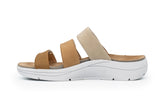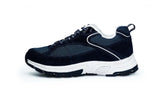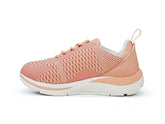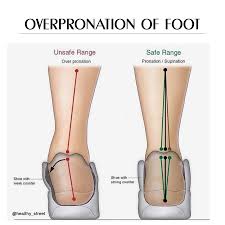Features to Look for in Shoes for Overpronation
When it comes to picking the right shoes, those with overpronation need to be particularly vigilant. Overpronation is a condition where the foot rolls inward more than normal during walking or running. This can lead to discomfort and even injury over time if not properly addressed. The good news is, there are shoes specifically designed to help manage overpronation. In this guide, we'll explore the key features you should look for in orthopaedic shoes, especially if you're dealing with overpronation.

Why It's Important to Address Overpronation
Ignoring overpronation can lead to a host of problems, such as plantar fasciitis, shin splints, and even arthritis. Wearing the right shoes can mitigate these risks by providing the support your feet need to maintain proper alignment.
Key Features in Overpronation Shoes
When shopping for shoes to address overpronation, look for these crucial features:
Arch Support

Motion Control
Motion control shoes are specifically designed to limit excessive foot movement. They have stiffer heels and a design that helps stabilise the foot, making them ideal for overpronators. These shoes are often heavier, but they provide the necessary structure to prevent the foot from rolling inward excessively.
Cushioning
While support is crucial, cushioning shouldn't be overlooked. Adequate cushioning absorbs shock and reduces pressure on the foot. Look for shoes with good-quality cushioning in the midsole to provide comfort without compromising support.
Stability
Stability shoes are a middle ground between neutral and motion control shoes. They offer a blend of support and cushioning, making them ideal for mild to moderate overpronators. These shoes usually have a firm midsole to provide the necessary support without being too rigid.
Special Considerations for Runners
If you're a runner dealing with overpronation, finding the right pair of overpronation running shoes is essential. Running shoes should not only offer support and cushioning but also have a durable outsole to withstand the impact of running.
Weight of the Shoe
Runners should pay attention to the weight of the shoe. While heavier shoes may offer more support, they can also slow you down. Look for a balance between support and weight, ensuring the shoe is light enough for running but robust enough to manage overpronation.
Breathability
Running generates heat, and having a breathable shoe can make a huge difference in comfort. Look for shoes made from breathable materials to keep your feet cool and dry.
Considerations for Diabetic and Arthritis Patients
For those with diabetes or arthritis, choosing the right shoe is even more critical. Diabetic shoes and arthritis shoes often have additional features to cater to specific needs:
Extra Depth
Shoes with extra depth allow for custom orthotics, which can provide additional support and comfort. They also provide more room, which is beneficial for swollen or sensitive feet.
Seamless Interiors
Shoes with seamless interiors prevent irritation, which is particularly important for diabetic patients who may have sensitive skin.
Wide Toe Box
A wide toe box provides ample space for your toes to move freely, reducing pressure and the risk of developing bunions or calluses.
Conclusion
Choosing the right shoes for overpronation is critical for maintaining foot health and preventing injuries. By focusing on features like arch support, motion control, cushioning, and stability, you can find shoes that offer the comfort and support you need. Whether you're looking for orthopaedic shoes, overpronation shoes, or the best running shoes for overpronation, keeping these considerations in mind will help you make an informed decision. Prioritize your foot health and enjoy the comfort of well-chosen footwear.








